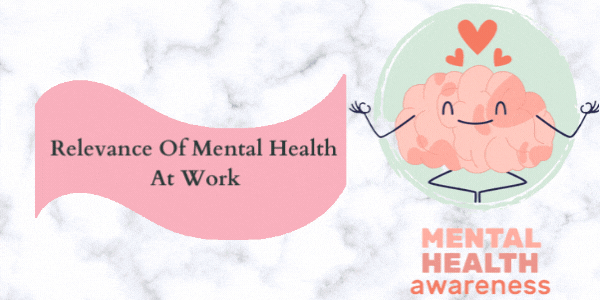 The importance of mental health is not a new concept that has come post-pandemic. This idea existed before the pandemic as well when people were burning out with workload and were unable to find time for themselves and their families. In the pandemic phase, burnout has increased with people working remotely for longer durations and not being able to get the support of colleagues and superiors.
The importance of mental health is not a new concept that has come post-pandemic. This idea existed before the pandemic as well when people were burning out with workload and were unable to find time for themselves and their families. In the pandemic phase, burnout has increased with people working remotely for longer durations and not being able to get the support of colleagues and superiors.
Mental well-being is directly relatable to work productivity. Studies show that employees with better mental peace produce better outputs at work. Employers are starting to realize the importance of supporting employees in the workplace, which increases output and helps to retain employees with the company. Research also shows one of the primary reasons for an employee to leave a company during the current period is unable to find time for themselves. This has resulted in mass resignation, with people leaving companies to find better culture and work-life balance. People are now more conscious of the fact that mental health is equally important as any other.
Register for AMCAT | India’s Leading Fresher’s Assessment And Job Site (myamcat.com)
Many workplace factors hamper an employee’s well-being, for example, lack of appreciation for good work, job insecurity due to economic downtown, inflexible working hours, rigid HR policies, and lack of support from colleagues. Employees facing trouble with any of the above factors should be counseled with care by the employer. This will first require creating a culture where employees can freely reach out to superiors or HR professionals to discuss mental well-being.
Stress, depression, emotional outbursts, lack of participation, limited communication, increased leaves, and fall in productivity are among the red flags indicating an employee is struggling at work. When experiencing stress or anxiety, many short-term or long-term responses can be undertaken by a person. The short term includes going for a quick walk, connecting with a friend, writing down thoughts, practicing deep breaths, and having a proper meal. Long-term habits which can be incorporated into the daily routine to tackle stress include doing regular exercise or yoga, meditation, having a sound sleep, indulging in hobbies, identifying reasons for stress, and taking steps to tackle it.
Must Read: Diversity in the Workplace
Employers are taking steps to improve their mental health through different means. Companies have introduced a four-day working week, no meeting day, wellbeing subsidy, webinars on same, and additional paid time off. However, no step would be successful unless organization’s culture supports mental health. Change in culture requires support from Senior Management by leading with examples, training line managers on the importance of mental well-being, implementing employee-friendly policies, creating an atmosphere of trust, ensuring transparent communication, and conducting surveys to get opinions.
Future demands creating a workplace where employees mental health is a priority. And everyone, whether employee or employer, has a role to play. If your colleague is going through a bad phase, always make it a point to proactively reach out to help and show that you care. Remain in touch with those needing help and create an atmosphere where mental peace is equally vital for an organization.

























